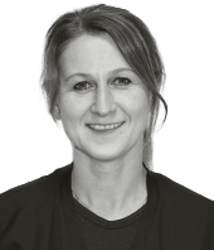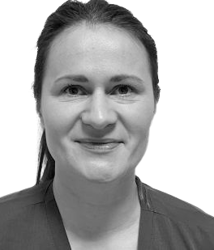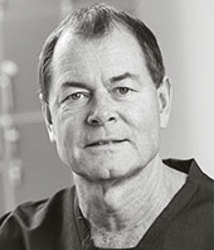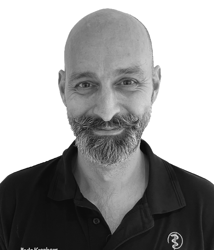Radiofrequency ablation of heart rhythm disturbances other than atrial fibrillation
We use this patient information to welcome you to the Heart Clinic at Private Hospital Molholm and to provide you with information on the treatment.
Our staff will do their utmost to ensure that you feel safe and comfortable during your stay. Our aim is to combine professional treatment with good personal contact.
RFA (Radiofrequency ablation)
The purpose of this treatment is primarily to treat abnormal heart rhythm.
General information
Preparations at home (fasting)
You are not allowed to eat for at least six hours prior to your appointment. You are permitted to drink until two hours prior to your appointment (avoid any dairy products).
You are not permitted to smoke less than two hours prior to your appointment.
Medication
Discontinue your medication for arrhythmia as set out in your admission letter. Other kind of medications are continued.
Shaving
Please shave your right-hand groin area using a single-use razor on the day prior to your admission:

What to bring
Toiletries, slippers and comfortable clothes. Also, bring your usual medication and your health insurance card.
Accompanying person and transport
Naturally, you may have someone accompany you.
However, you do not strictly need being accompanied as you are permitted to carry a weekend bag with a change of clothes and toiletries and are also permitted to use public transport on your day of discharge – including travelling by airplane.
Visiting hours and telephone contact
During your admission, your relatives may call the secretariat on telephone number +45 7642 7420.
Your spouse may be present at the hospital before, during and after treatment.
Mobile telephones are permitted.
On your day of admission
Preparing for your treatment
On your day of admission, you will be received by a nurse who will help you settle in and provide you with information about your hospital stay. You will be given the actual time of your surgery and specific precautions in connection with the surgery.
A line will be inserted into a vein in your arm. Your blood pressure and pulse will be taken and blood samples may also be taken and an ECG may be performed.
Immediately prior to surgery, the responsible cardiologist will meat with you and inform you of any details, including any specific circumstances relating to your arrhythmia, which may impact the effect as well as any side effects of the surgery.
There will be plenty of time for this consultation and, naturally, your relatives are welcome to participate.
As surgery times vary, you need to be prepared for some waiting time. Regardless of any waiting time, you will be treated on the day in question.
The procedure
The surgery takes approximately two hours. You will see a fair amount of technical equipment in the treatment room, such as X-ray equipment.
Learn more about the use of X-rays here: X-rays (In Danish)
Via the veins in your groin, thin catheters are threaded to your heart. The catheters allow us to measure the electrical impulses in your heart. By using gentle electrical pace impulses, the bothersome arrhythmia can often be started. Measurements are made at different locations in your heart and once the surgeon has found the cause of your arrhythmia, the tip of the catheter is positioned against the inside cardiac wall. Using an increase in the temperature of the catheter tip to approximately 65⁰C, the cause of your arrhythmia is treated in the course of a couple of minutes.
The surgery is carried out under local anaesthetics and is rarely painful. You do not feel the catheters in your heart.
You will be given relaxant medicine as required and desired to allow you to doze off during the examination.
Aftercare
You will be monitored by a nurse for the next two hours, during which time you will need to lie flat on your back due to the risk of bleeding from the incision in your groin.
If you feel any discomfort, pain, sensations of heat or swelling in your groin area, you must tell the nurse of this.
Prior to discharge, your cardiologist will meat with you. This will be an opportunity to discuss any future precautions.
Discharge
Your incision will be checked.
You will receive your discharge papers and we will send a discharge letter with a description of the treatment to your own medical practitioner and the hospital which referred you for treatment.
Home transport
You are permitted to drive or use public transport the day after the treatment. This includes flying.
When at home
The first week you must protect your groin by avoiding heavy lifting and long walks. However, we recommend to wait for two weeks before you do sport activities.
You may return to work approximately one week after discharge. However, if your job is physically demanding, you must allow yourself two weeks’ recovery before going back to work.
Many patients have some pain/pressure/murmuring in the chest or light headaches the first few days after treatment, which can be managed with paracetamol 1 gram up to a maximum of 4 times daily - i.e. every 6 hours.
Complications
In rare instances (a total risk of less than 1%), complications may arise:
- a significant accumulation of blood in your groin area incision accumulation of blood in your pericardium
- air in your pleura
- small blood clot in your vessels, in your heart or in other organs (brain, kidneys, lungs)
- These complications may require observation or specialist treatment which may be carried out locally. You will be informed of your risk during your consultation with the responsible cardiologist prior to surgery.
- In the case of certain types of arrhythmia, there is a small risk (less than 1 %) of inadvertently damaging the normal electrical system of the heart during surgery. If this is the case, it may be necessary to fit a pacemaker after a period of observation. This procedure is also carried out at the Heart Clinic.
You may develop a small bruise in the groin area around your incision. Some patients develop a slightly bigger accumulation of blood which may be bothersome during the first couple of weeks after surgery.
Many patients experience slight pains/pressure/a dull ache in the chest for a couple of days after treatment. If you experience this, Panodil or another paracetamol may be taken to ease discomfort.
You are always welcome to call Privathospital Mølholm at: +45 8720 3040
Specialists and practitioners












